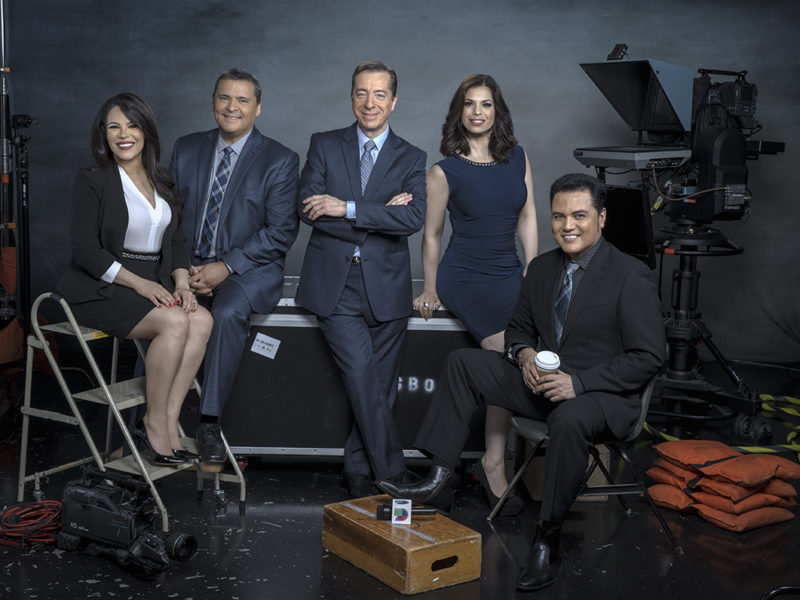
Can comedy and activism intersect?
This past weekend, Univision’s Rise Up team presented Comedy for Change, a day-long comedy conference meant to discuss the intersection between comedy and activism in the modern world. Hosted by Fran Hoepfner on behalf of The Onion, the event saw comedians from all over the world take to the stage of Chicago’s Lincoln Hall to discuss what comedy looks like today, what it can achieve in the social sphere and how it can keep pushing conversations forward.
Comedy is a place to go when you don’t know how to feel
One of the most compelling points was made early in the morning. As Hoepfner explained The Onion’s mission, she noted that part of its goal is to offer guidance when people are trying to make sense of an issue. In a world where breaking news happens at an incredibly rapid rate—and on a nearly daily basis—it can be hard to make heads or tails of everything. As Hoepfner displayed in her presentation, The Onion is a place people can turn to for a laugh and a little bit of perspective.
Comedy makes people pay attention
Echoing Hoepfner’s point, Founder of The Laughter Effect Project and Executive Producer of Stand Up Planet Carly Borum Chattoo explained that comedy also serves as a means of exposure for certain social issues. In Stand Up Planet, she pointed out how comedian and The Daily Show correspondent Hasan Minhaj used comedy as a means of highlighting the issues of food waste in America while also shedding a light on the poverty in areas of India and South Africa. It was a means of using humor to spotlight a very specific social item, while also showcasing the experiences of Minhaj and the other comedians, all of whom have a distinct story.
“Laughing at the problem isn’t an alternative to addressing the problem.”
Around the conference’s midpoint, Hoepfner interviewed Bassem Youssef, who spoke at this year’s Chicago Ideas Curiosity Series. Known as the “Egyptian Jon Stewart,” Youssef noted that satirists and comedians aren’t activists, and that their role stops at the end of the stage. But he made it clear that it’s the job of the audience to take those ideas out into the world. “Laughing at the problem isn’t an alternative to addressing the problem,” he said, explaining that laughing may make you feel good, but that can’t be where it ends.
Playfulness encourages activism
During the Comedians & Communities panel, which was hosted by Director of Comedy Studies and Comedy Writing and Performance at Columbia College Chicago Anne Libera—who spoke at Chicago Ideas Week in 2016—alongside a diverse group of speakers such as comedian Felonious Monk, Executive Director of the Harnisch Foundation Jenny Raymond and Associate Director at California Programs for NARAL Pro-Choice America Rebecca Griffin, the panelists discussed what comedy can mean to individuals and communities in the present day. Monk noted that audiences are able to build safe spaces for themselves, highlighting that social changes have pushed comedians to skew away from cheapshots while being conscious of the perspectives of historically marginalized groups. They put forth the idea that comedians and activist groups can work together to create change in the world.


